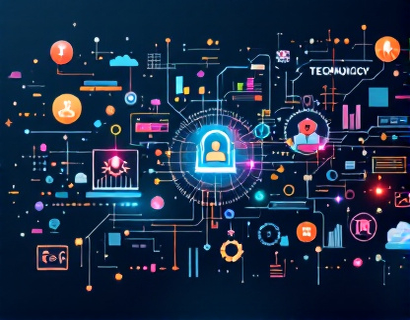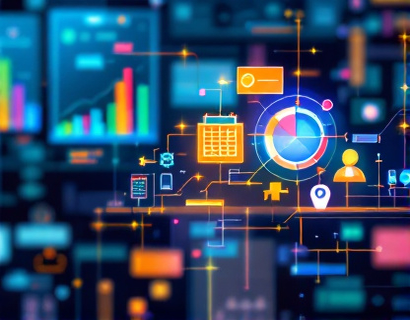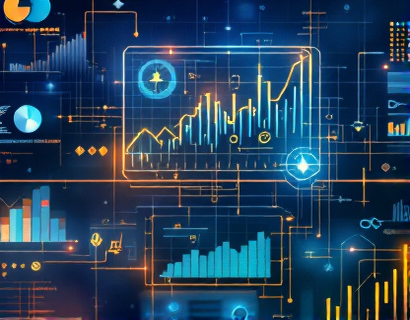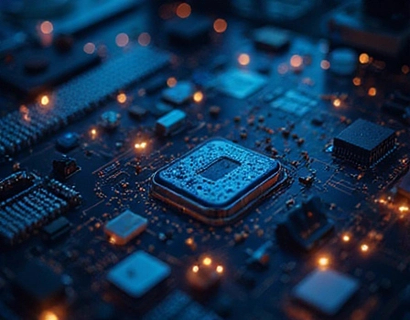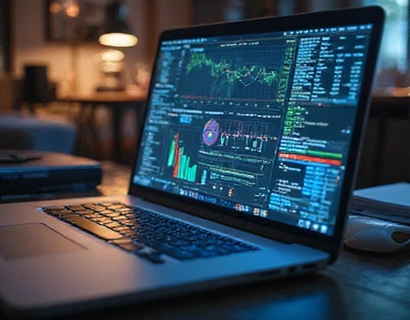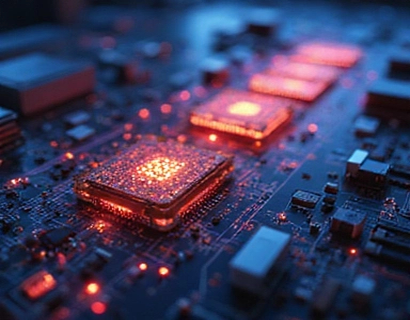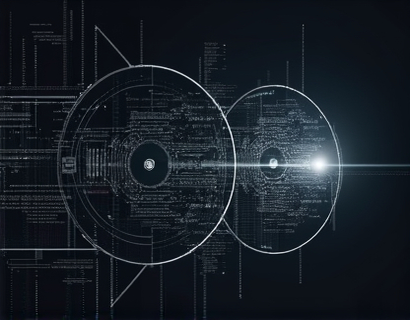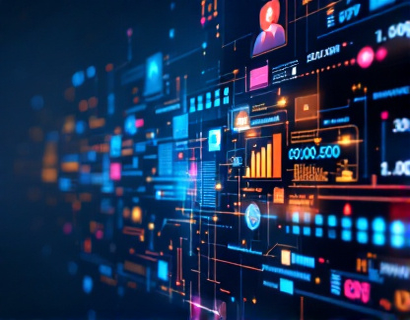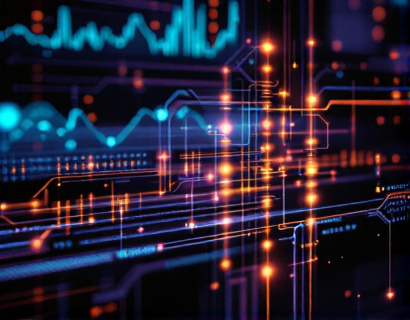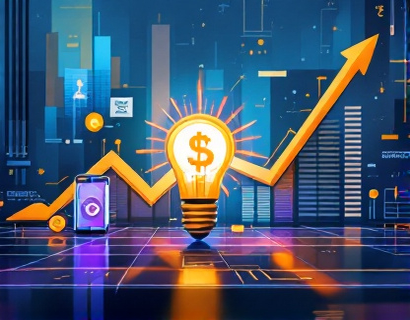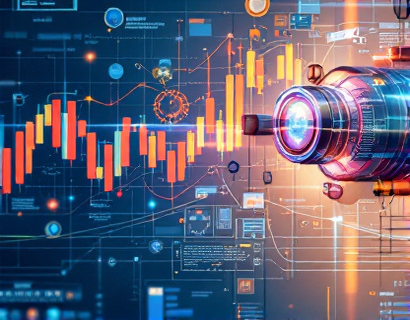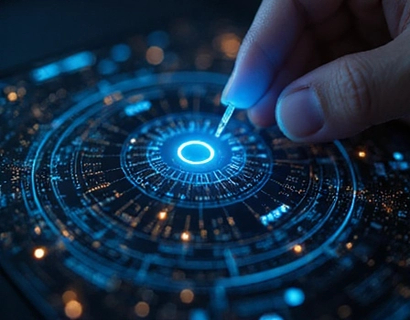Decentralized Revolution: Harnessing Crypto and AI for Next-Gen Digital Transformation
The digital landscape is undergoing a profound transformation, driven by the convergence of cryptocurrency and artificial intelligence. This revolution is not just about technological advancements but a paradigm shift in how we perceive and interact with digital services. The emergence of decentralized applications (dApps) and AI-driven services is redefining user experiences, enhancing security, and fostering unprecedented levels of engagement. This article delves into the transformative power of merging these two cutting-edge technologies, exploring their potential and the future they promise.
The foundation of this revolution lies in blockchain technology, the backbone of cryptocurrency. Blockchain's decentralized nature eliminates the need for intermediaries, ensuring transparency, security, and trust. When combined with AI, which excels in data analysis, pattern recognition, and autonomous decision-making, the potential for innovation becomes immense. Together, they pave the way for a new era of digital transformation, one that is more secure, efficient, and user-centric.
Decentralized Applications: The New Frontier
Decentralized applications, or dApps, are applications that run on a blockchain network rather than on a central server. This decentralization offers several advantages. First, dApps are inherently more secure due to their distributed nature, making them less vulnerable to hacks and data breaches. Second, they provide greater transparency as all transactions and data are recorded on the blockchain, visible to all participants. Third, dApps enhance user control, allowing individuals to manage their data and assets without relying on third parties.
The development of dApps has been accelerated by the availability of smart contracts, self-executing contracts with the terms directly written into code. Smart contracts automate and enforce agreements, reducing the need for intermediaries and lowering transaction costs. This has opened up new possibilities in various sectors, from finance and supply chain management to healthcare and voting systems.
One of the most significant impacts of dApps is in the financial sector. Decentralized finance (DeFi) platforms offer a range of financial services, including lending, borrowing, and trading, all accessible through decentralized protocols. These platforms leverage AI to enhance their functionalities, such as predictive analytics for risk assessment and automated trading strategies. The result is a more inclusive, efficient, and transparent financial system.
AI-Driven Services: Enhancing User Experiences
AI is revolutionizing the way services are delivered, making them more personalized, efficient, and intuitive. In the context of decentralized systems, AI can optimize resource allocation, improve security measures, and enhance user interactions. For instance, AI-powered chatbots can provide 24/7 customer support on dApps, handling queries and resolving issues in real-time. These chatbots can be integrated with blockchain to ensure secure and transparent interactions.
Another area where AI shines is in data analysis. Decentralized systems generate vast amounts of data, and AI can process and analyze this data to uncover valuable insights. These insights can be used to improve service offerings, predict user behavior, and enhance overall user experience. For example, AI can analyze user interactions on a decentralized marketplace to recommend products or services tailored to individual preferences.
AI also plays a crucial role in enhancing the security of decentralized applications. Machine learning algorithms can detect and mitigate potential threats, such as fraudulent activities or network attacks. By continuously learning from new data, these algorithms become more effective over time, providing a dynamic and robust security framework.
Synergy Between Crypto and AI
The synergy between cryptocurrency and AI is evident in the creation of decentralized AI models. Traditional AI models rely on centralized data repositories, which can be a bottleneck and a security risk. Decentralized AI, on the other hand, distributes data and computation across a network, ensuring privacy and scalability. This approach allows for the development of more powerful and versatile AI models without compromising user data.
One notable example is the use of federated learning, a decentralized approach to machine learning where models are trained across multiple devices or servers holding local data samples, without exchanging them. This method not only preserves privacy but also leverages the collective data to improve model accuracy. When combined with blockchain, federated learning ensures that data contributions are rewarded with cryptocurrency, incentivizing participation and data sharing.
Moreover, AI can optimize blockchain networks themselves. For instance, AI algorithms can manage network resources, optimize transaction processing, and enhance consensus mechanisms. This leads to more efficient and scalable blockchain networks, capable of handling a higher volume of transactions without compromising performance.
Use Cases Across Industries
The potential applications of decentralized technologies powered by AI are vast and varied. In the healthcare sector, decentralized health records managed on a blockchain can be enhanced with AI for predictive diagnostics and personalized treatment plans. This ensures patient data is secure, accessible, and utilized effectively for better health outcomes.
In the supply chain industry, blockchain provides transparency and traceability, while AI can optimize logistics and inventory management. Smart contracts can automate payments and ensure compliance with contractual obligations, reducing delays and disputes. The combination of these technologies leads to more efficient and reliable supply chains.
The real estate market is another area poised for transformation. Decentralized platforms can facilitate property transactions, reducing the need for intermediaries and lowering costs. AI can analyze market trends, assess property values, and match buyers and sellers based on preferences and criteria, streamlining the entire process.
Challenges and Considerations
Despite the immense potential, the integration of cryptocurrency and AI in decentralized applications is not without challenges. One of the primary concerns is regulatory uncertainty. As these technologies are relatively new, regulatory frameworks are still evolving, creating a complex landscape for developers and users alike. Ensuring compliance while innovating is a delicate balance that requires continuous monitoring and adaptation.
Another challenge is the technical complexity involved in building and maintaining decentralized systems. Developers need a deep understanding of both blockchain and AI to create robust and secure applications. This requires a skilled workforce and significant investment in research and development.
Scalability is also a critical issue. While blockchain technology has made strides in increasing transaction speeds, it still faces limitations compared to centralized systems. AI can help mitigate this by optimizing network operations and resource allocation, but further advancements are needed to achieve true scalability.
Future Outlook
The future of decentralized applications powered by cryptocurrency and AI is promising. As technology continues to evolve, we can expect more seamless integration, improved performance, and broader adoption across various industries. The rise of Web 3.0, a decentralized internet, will further accelerate this trend, creating a more open, secure, and user-driven digital environment.
In this future, users will have greater control over their data and digital assets, with enhanced privacy and security. Decentralized platforms will become the norm, offering more transparent and equitable services. The synergy between crypto and AI will continue to drive innovation, leading to new applications and use cases that we can only begin to imagine today.
In conclusion, the convergence of cryptocurrency and AI is not just a technological advancement but a transformative force reshaping the digital world. By embracing these technologies, we can unlock new possibilities, enhance user experiences, and build a more decentralized and inclusive digital future.








